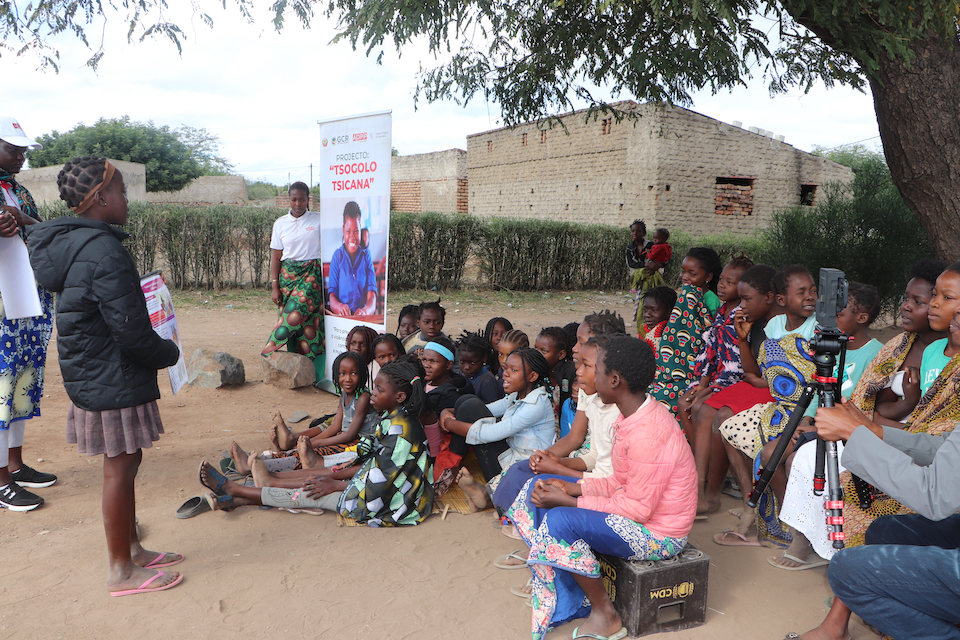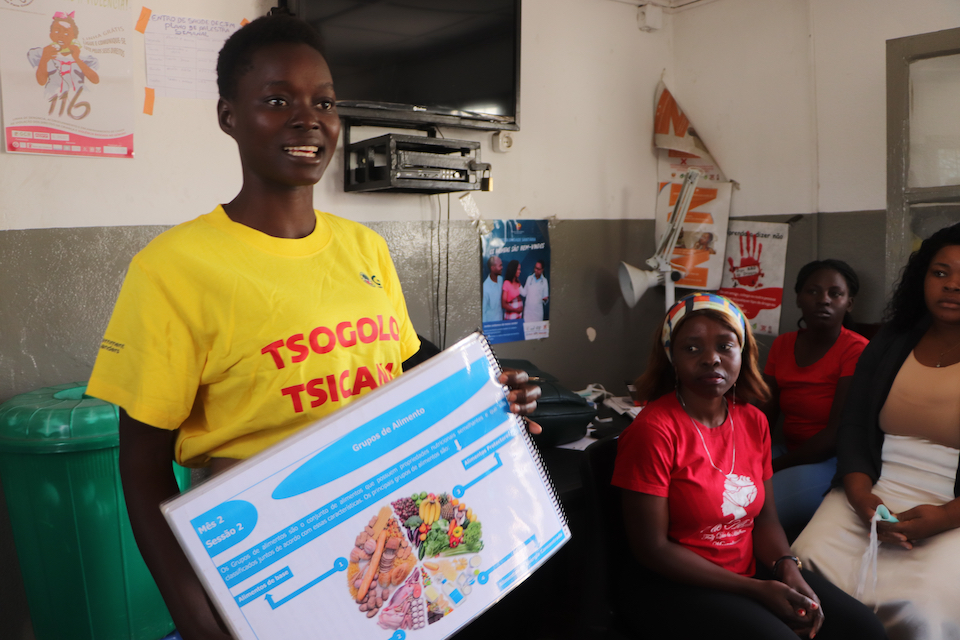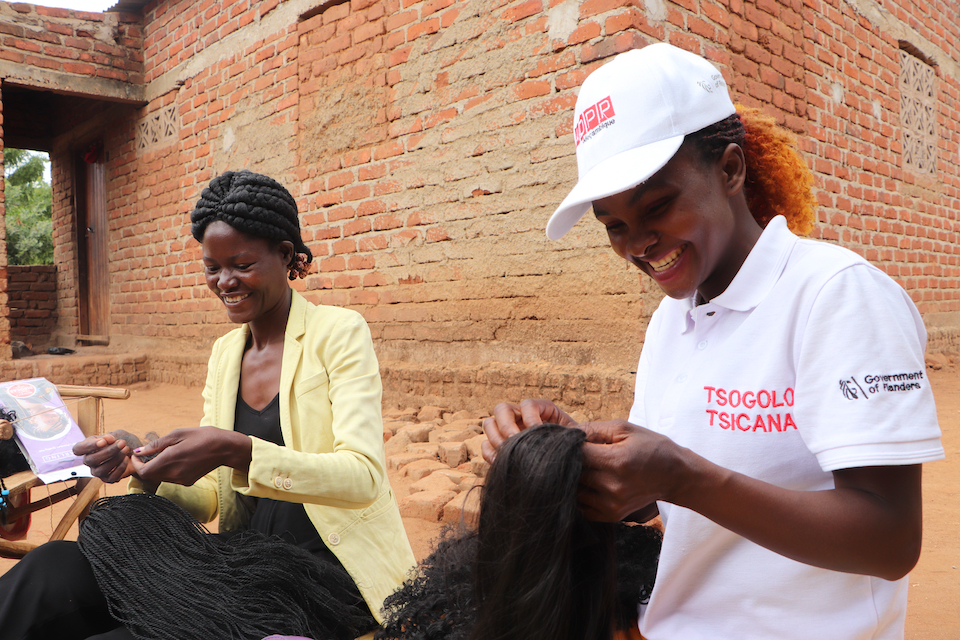The Tsogolo Tsicana Project (“Go Girl”), funded by the Government of Flanders and implemented by ADPP Mozambique in consortium with GCR in Tete Province, is transforming the lives of thousands of Adolescent Girls and Young Mothers (AGYM) aged 9 to 24 in the districts of Tete, Changara, and Moatize—regions where rates of early unions, teenage pregnancies, other forms of Gender-Based Violence (GBV), and vulnerability to HIV remain high.

With a community-based approach focused on empowering girls, the project promotes access to education, health, economic autonomy, and protection against GBV, creating a support system where adolescents and young women can grow up healthy and with dignity. The strength of Tsogolo Tsicana lies in its integrated approach, which connects the community, schools, and health services, engaging mentors, navigators, health professionals, teachers, community leaders, and the broader community to unite efforts in helping Adolescent Girls and Young Mothers make informed decisions, care for their health, and secure a better future for themselves and their families.
Between 2023 and 2025, more than 9,000 girls have been referred to Adolescent and Youth-Friendly Health Services (SAAJ), accounting for nearly 21% of all youth consultations in supported health facilities. This increased access to Sexual and Reproductive Health services has contributed to a 15% reduction in teenage pregnancies in the target districts.
In the GBV component, the project identified 415 cases, with almost half resolved, thanks to the active involvement of community leaders who played a key role in about 38% of resolved cases. These interventions demonstrate the crucial role communities play in preventing and effectively responding to violence.

Access to and retention in school have also gained new momentum, enabling more than 50 girls to return to school—many with direct support from the project. Awareness-raising activities such as Father’s Day events at schools, community dialogues, and home visits have resulted in a 25% decrease in school dropouts in participating schools compared to the previous academic year.
Knowledge of HIV status and peer support have been essential tools in the HIV response. More than 7,000 girls now know their HIV status, and 196 girls living with HIV are part of TRIOs—a patient support strategy that strengthens adherence to antiretroviral treatment.
Economic empowerment is also a priority. The project facilitated the creation of 83 Savings Groups, which over three years accumulated the equivalent of more than USD 15,000. These groups have enabled around 659 young mothers to invest in small income-generating activities and achieve economic independence.

Examples like that of Sónia Arnaldo, a young mother from Changara District who started making and selling wigs, show how income generation changes lives. Today, Sónia has returned to school, as her sales profits allow her to buy school supplies and help her husband with household expenses—thanks to the project’s support.
In Moatize District, Antónia Beca is now a community navigator and highlights the progress made, especially in reducing early unions and teenage pregnancies. Meanwhile, teacher Ângela João from Paróquia School in Moatize states that her school no longer has dropout cases, showing the project’s direct impact in classrooms.
At the CFM Health Center in Moatize, nurse Maria Fernando, the SAAJ focal point, confirms the growing demand for SAAJ services among girls, although the lack of supplies remains a challenge. Despite these limitations, the presence of Tsogolo Tsicana has helped maintain essential responses at a time when several international donors have withdrawn support for the Sexual and Reproductive Health component in Mozambique.

Changara District Chief Medical Officer, Isac Maposse, reports significant changes in young people’s attitudes since 2023, with an estimated 10–15% reduction in early unions in more remote areas. These figures show that Tsogolo Tsicana is more than a response to a social problem—it is a transformative and sustainable model.
In a context where about 90% of health services in Mozambique rely on donors, Tsogolo Tsicana proves that locally led solutions, built with and for communities, can deliver concrete results and serve as a global model.

